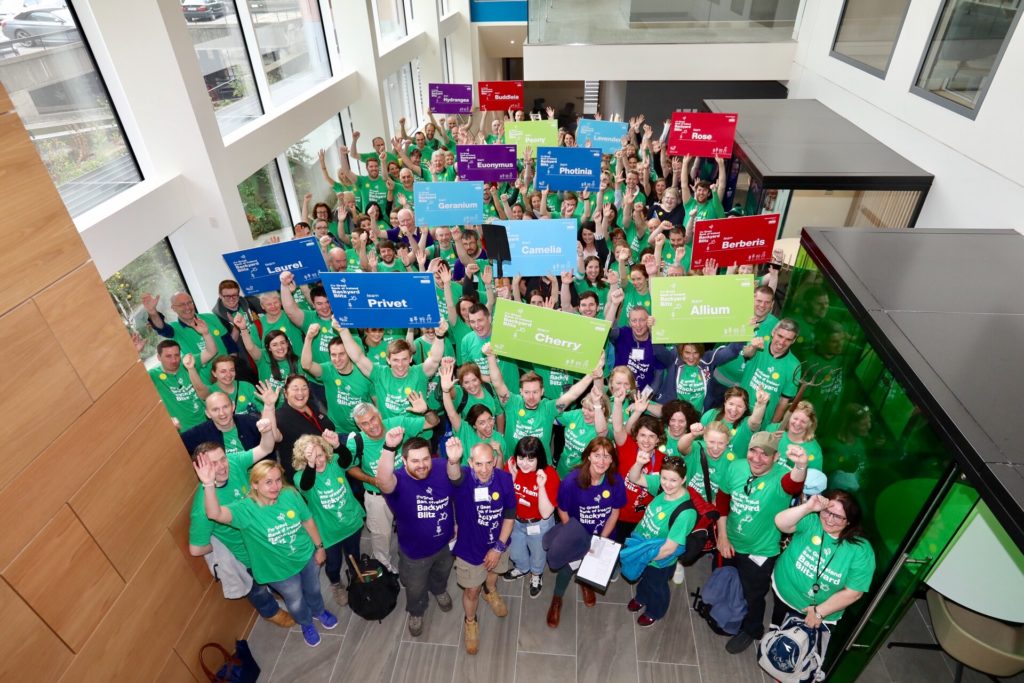The Business Case for CSR and Sustainability
What is the business case for sustainability?
“Business in the Community Ireland was set up almost 20 years ago as the European Commission started to define and articulate sustainability and the role of business addressing its impacts on society and the environment.
Responsible business practice is not a new management fad. When Arthur Guinness set up in 1756 the St. James’ Gate Brewery in Dublin, he instituted the values of caring for employees by providing housing and health facilities. Prosperity sharing was the vision that in 1888 the Lever brothers, owners of the soap factory in Port Sunlight (UK) instilled to define an inclusive approach to workers and engagement.
Our strategic focus is on Ireland’s transition to a low carbon economy and promoting meaningful business-led social inclusion. We do this through strategic advice on sustainability and support to business and we function as a think tank and an advocate for these issues.
Ten years ago we launched the Business Working Responsibly mark. It is an independent and third party verified management systems evaluation that mirrors the global standard on sustainability, ISO 26000. By having a formal standard on corporate responsibility and sustainability, Irish business is demonstrating leadership within the international marketplace and can help strengthen a business ESG credentials.
Business has a huge role to play in driving sustainability. We must work together to develop future-fit business models that will enable resilient and sustainable companies to thrive.
The Sustainable Development Goals have clearly defined a roadmap for the sustainability of our planet, society and economy. Partnerships and collaboration are critical to achieve these ambitions.
Our members are among the best managed companies – those that are really successful today and will be in the future – as they have fully integrated these considerations, whether they label them sustainability, environmental considerations or CSR.
CSR and sustainability is shown to drive innovation, trust, management efficiencies and transparency.
Business in the Community Ireland wants to ensure that businesses see that the only acceptable way of running a profitable, successful business is by being sustainable.
We want to be a partner on that journey. We hope this article is a useful space to start the conversation for any business looking at uncertainty and the challenging landscape ahead.”
Tomás Sercovich,CEO, Business in the Community Ireland
The business case for sustainability: the raising expectations around sustainability
This year saw sustainability become mainstream. We live in an increasingly transparent world and there are rising expectations from a number of stakeholders on companies to act responsibly and sustainability. This article rounds up some research and key statistics demonstrating the rising expectations among key audiences.
The business case for Sustainability: ESG and Investors
In Larry Fink’s 2019 annual letter to Fortune 500 companies, the manager of Blackrock’s $6 trillion fund doubled down on his argument that businesses have a responsibility to the communities they serve, not just to their bottom line, since “profits and purpose are inextricably linked.”
Increasingly, investors are seeking EESG ( Environment, Social, Governance) reporting from companies. According to a 2019 article in Forbes, “Investment that takes into account economic, environmental, social and governance (ESG) issues now represents one in every four dollars invested in the US and has risen to nearly $23 trillion globally. This growth is little surprise given that the World Economic Forum has included among its top global economic risks for 2019: extreme weather, biodiversity loss, failure to mitigate climate change and the water crisis.”
It goes on to point out that “ESG issues used to be considered “non-financial risks”. It is now clear that they are in fact, material financial risks and opportunities that can have a significant impact on the bottom line.”
Here are some further statistics reinforcing the increasing interest of investors in non-financial reporting:
93% of the world’s 250 largest companies are now reporting on sustainability (The KPMG Survey of Corporate Responsibility Reporting, 2017)
According to research from Greenbiz 2017: Is your non-financial performance revealing the true value of your business? Where 320 senior decision makers at buy-side investment institutions worldwide were interviewed, the following statistics emerged:
- 92% of respondents believe that ESG issues — ranging from climate change to diversity to board effectiveness —have real and quantifiable impact over the long-term.
- More than 80% of respondents believe that generating sustainable returns over time requires a sharper focus on ESG factors.
- In addition, 91% of respondents find integrated reports useful when making an investment decision.
More and more of our member companies are seeking to achieve our Business Working Responsibly Mark, Ireland’s only certified standard for sustainability which is based on ISO 26000 and audited by the National Standards Authority of Ireland. Increasingly companies are using the Mark and the management tool behind it to tell their ESG story.
The business case for Sustainability: Employees
2019 saw the emergence of the employee as activist. From 4,500 Amazon employees writing to Jeff Bezos demanding more to be done on climate change to other companies witnessing employees going out to protest on issues such as diversity and inclusion, the climate crisis and unethical practices, the power of employees to be heard and demand change is rising.
Having engaged, satisfied, motivated, innovative and skilled staff is one of the key challenges for every CEO in Ireland today. To recruit, train and retain the appropriate staff is proving testing in an environment where employee mobility is high and employees want to work for companies whose values align with their own. More and more employees are now choosing to work for companies based on their sustainability agenda.
According to the Deloitte Millennial Survey in 2019, based on the views of 13,416 millennials questioned across 42 countries and territories and also includes responses from 3,009 Gen Z respondents in 10 countries, business leaders’ priorities must align with broader societal impact to attract this generation of talent.
Millennials’ opinions about business continue to diminish, in part due to views that businesses focus solely on their own agendas rather than considering the consequences for society. Fifty-five percent said business has a positive impact on society, down from 61 percent in 2018.
In addition, millennials and Gen Zs, in general, will support companies that align with their values. Younger generations are putting their money where their mouths are when it comes to supporting businesses that make a positive impact on society. Many say they will not hesitate to lessen or end a consumer relationship when they disagree with a company’s business practices, values or political leanings.
In Ireland, popular business news site Fora.ie ran an online poll in June 2019 entitled “Would a company’s green credentials affect your job choice? with 55% of respondents saying yes.
With the launch of our Low Carbon Pledge, we encourage all members to communicate their green credentials to employees as it is proving to be a competitive advantage when looking for talent.
This is backed up by the 2019 Edelman Trust Barometer surveyed 1,150 people in Ireland to gauge respondents’ trust levels in and attitudes towards business, NGOs, the media and the political system.
The Barometer’s Irish findings revealed that more than ever, the Irish general population now expects that CEOs should take the lead on change rather than waiting for government to impose it. The findings also show that CEOs can create positive change on issues such as equal pay, the ending of discrimination, improving the environment and job training.
The pay-off for businesses that meet these expectations and achieve high levels of trust are employees who align their identity and thinking with their employer and who are far more likely to advocate on their behalf. This employee advocacy includes recommending a company’s products and services but also extends to championing their employer as a place to work. The Barometer also showed that trusted employers were rewarded by their staff with greater commitment (82%), advocacy (75%), engagement (64%) and loyalty (63%).
Employees want to see leadership and our CEO as Activist Podcast series focuses on the emergence of CEOs in Ireland taking a stance on environmental and societal issues.
BITCI helps companies engage their employees on sustainability and in community engagement.
The business case for Sustainability: Customers and General Public
This year we witnessed sustainability become more prevalent in the public domain. From daily headlines in the Irish media on climate change and issues such as single use plastics and biodiversity to robust debate around social inclusion and the role of business in society, the public wants to see businesses act as an instrument for positive change.
Commenting on the findings of their 2019 Edelman Trust Barometer, Joe Carmody, Managing Director said, ”There has been a massive shift in the past year among Irish people about the role of business, with the vast majority of the public now expecting companies to do good as well as being profitable.”
The survey went on to show that 70% of Irish respondents agreed with the statement: “‘A company can take specific actions that both increase profits and improve the economic and social conditions in the communities where it operates”, an increase of nine points on the 2018 figure.
The 2019 Edelman Trust Barometer also reveals that the vast majority of Irish people (75%) expect CEOs to take the lead on change rather than waiting for government to impose it – an increase of 12 points on the previous year.
Consumers are also choosing more sustainable products at the checkout. In 2018, Unliever revealed its fourth consecutive year of growth for its ‘sustainable living’ brands, which grew 46% faster than the rest of the business and delivered 70% of its turnover growth.
This article presents just a snapshot of the sustainability business case. With the rising awareness of the Sustainable Development Goals and interest in the Circular Economy, the business case continues to evolve.
Check out how we can support your business, explore our sustainable business advisory services.




